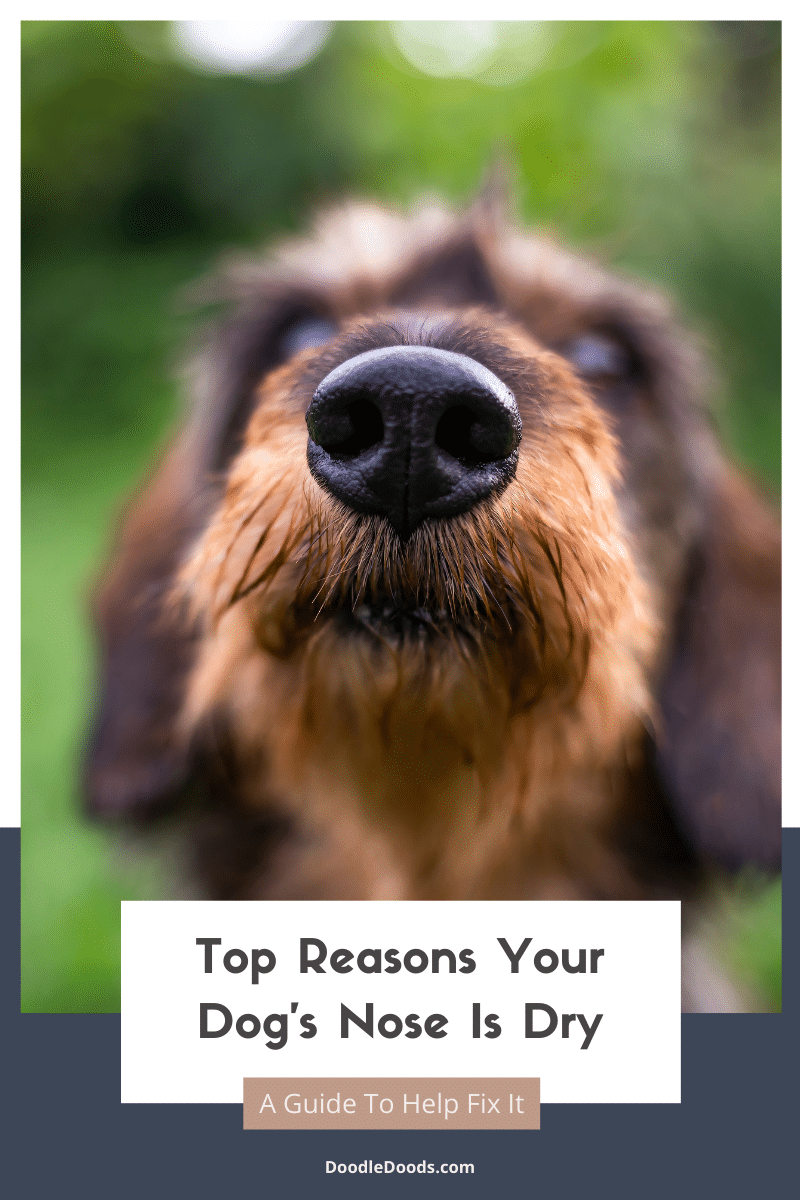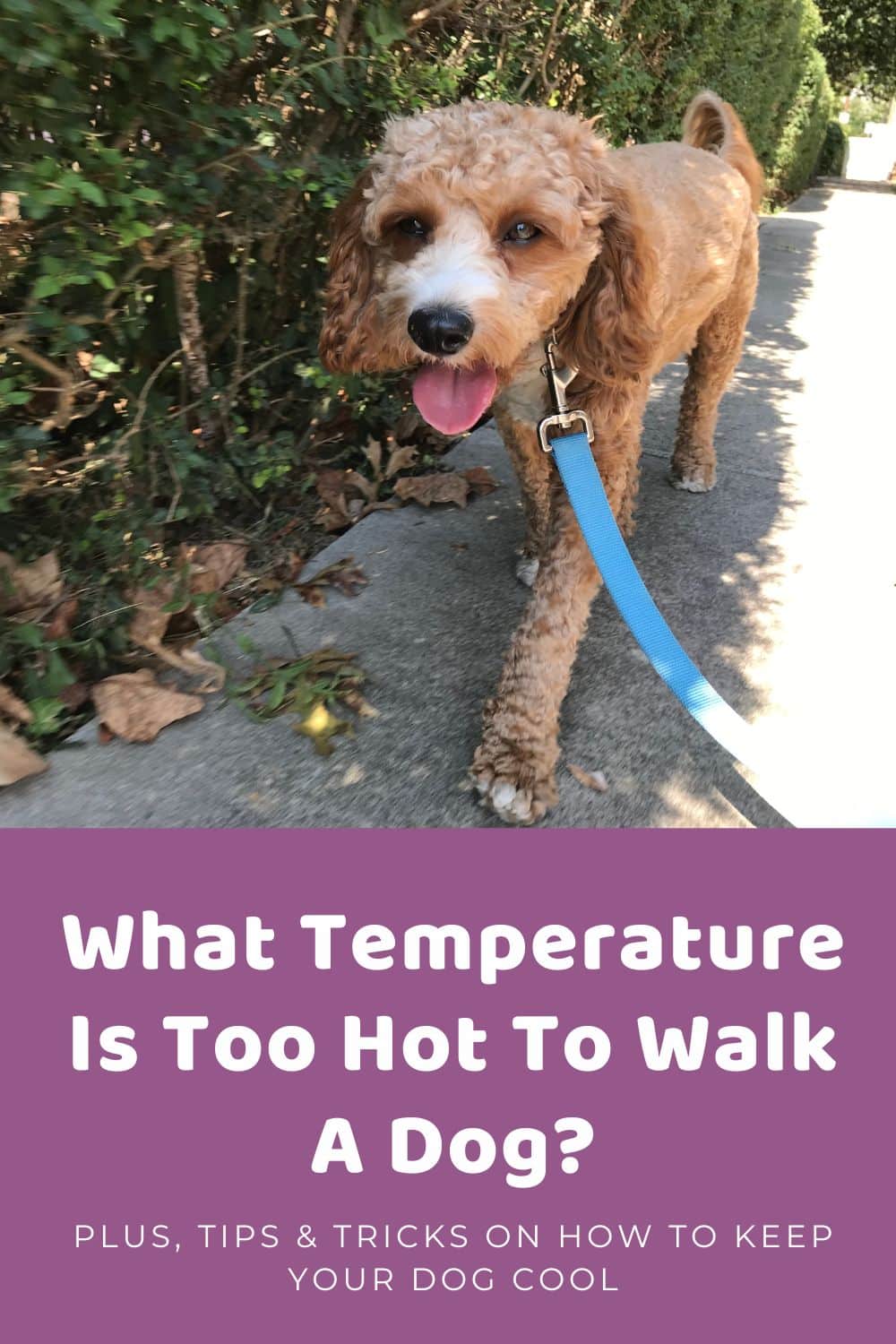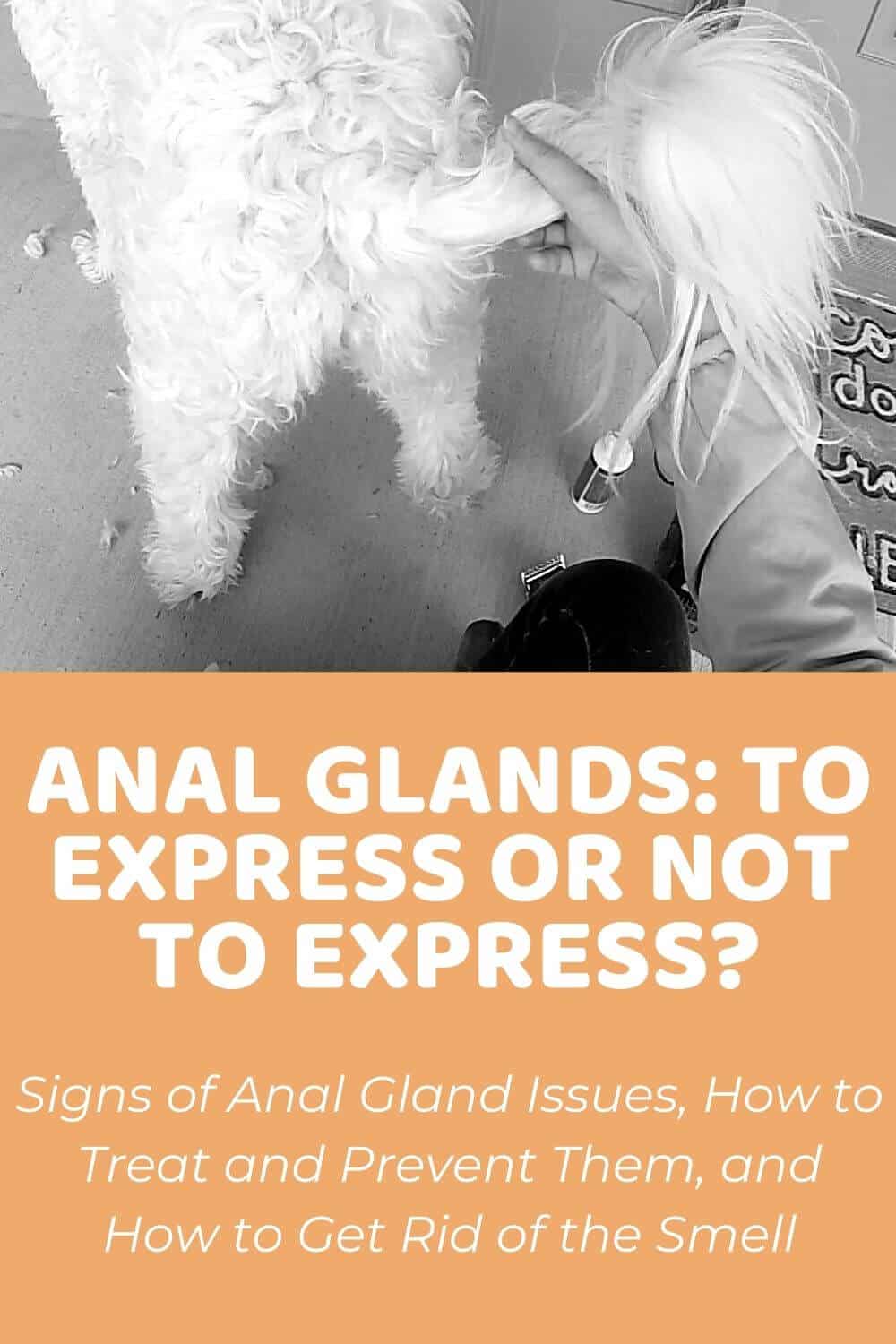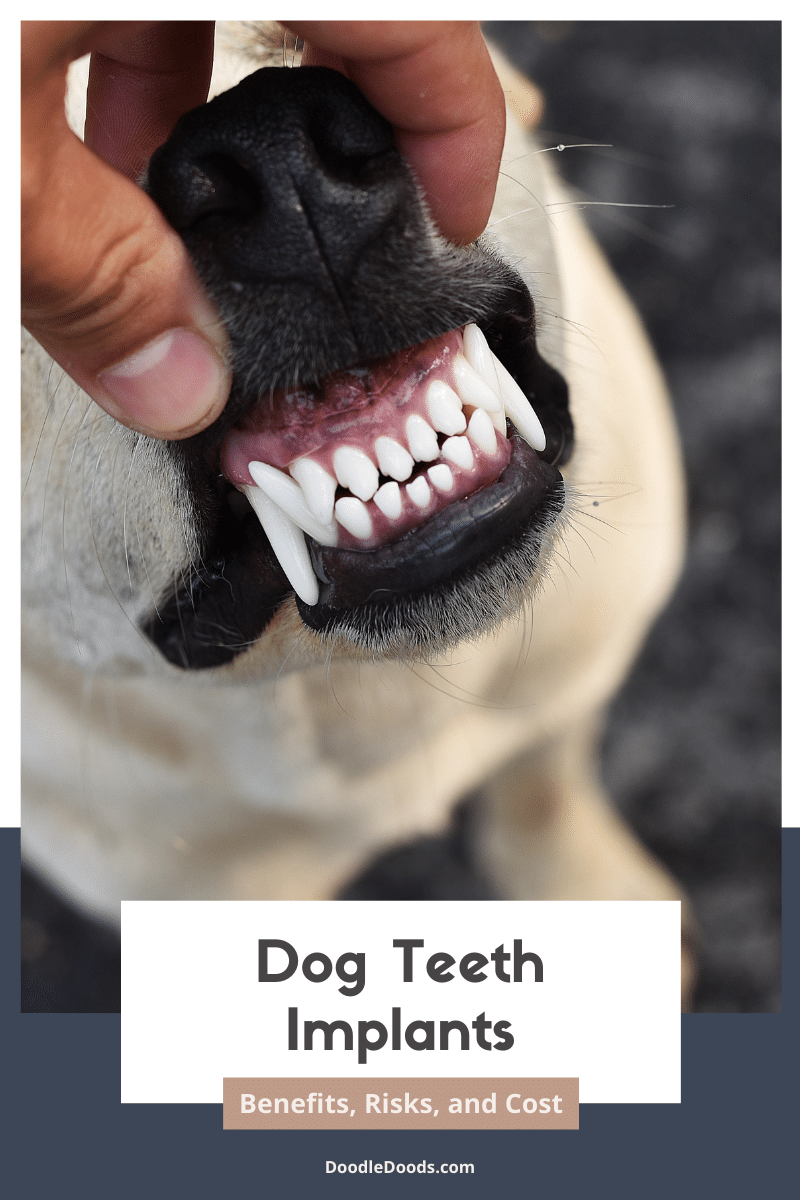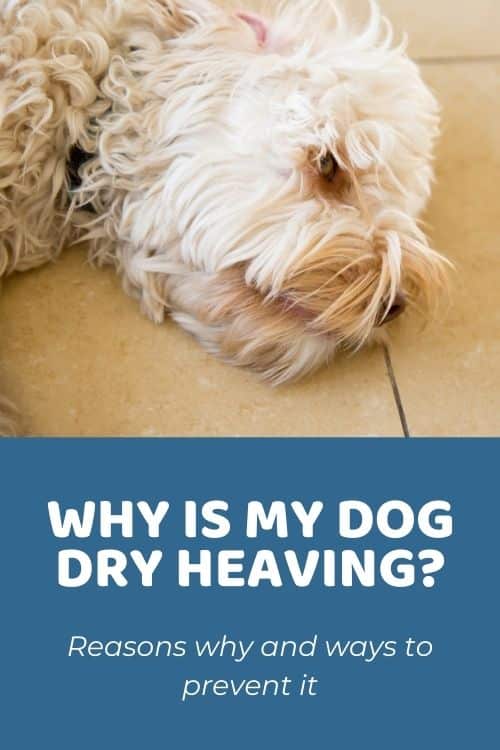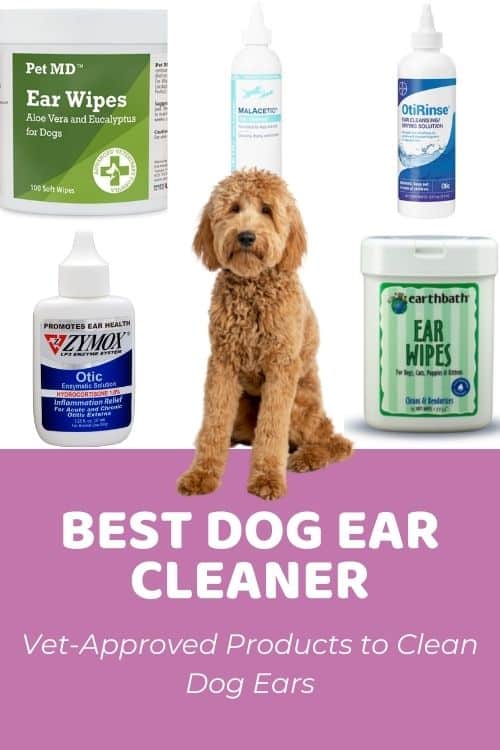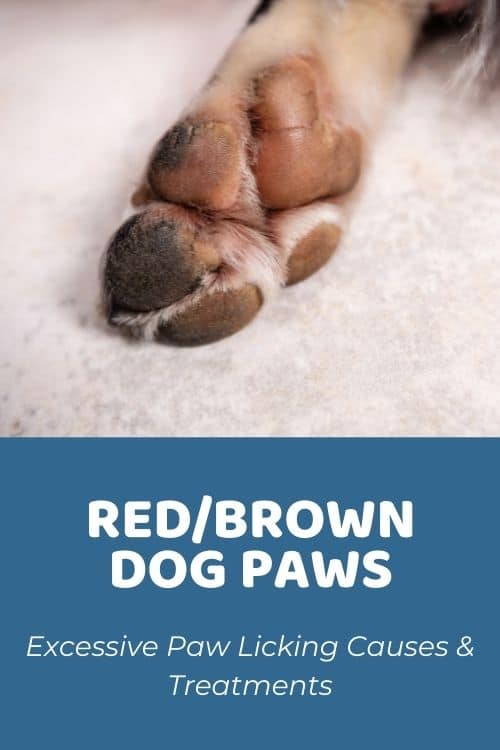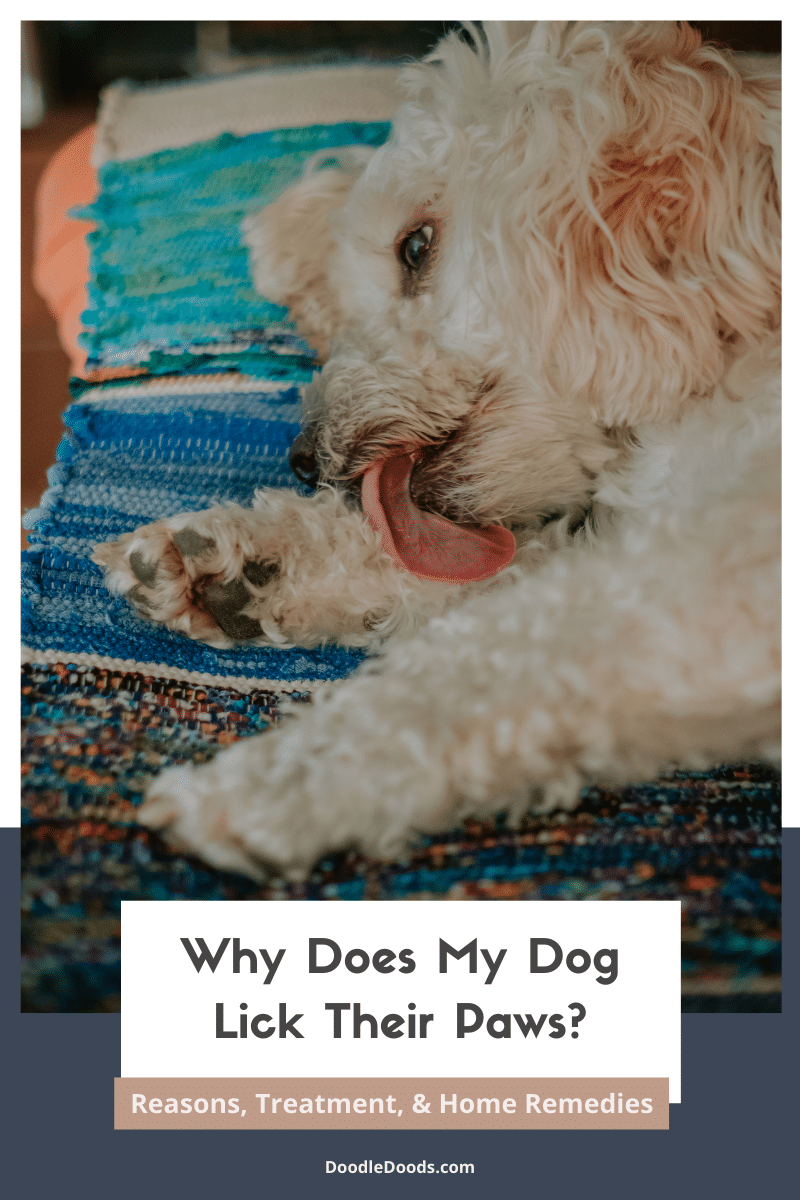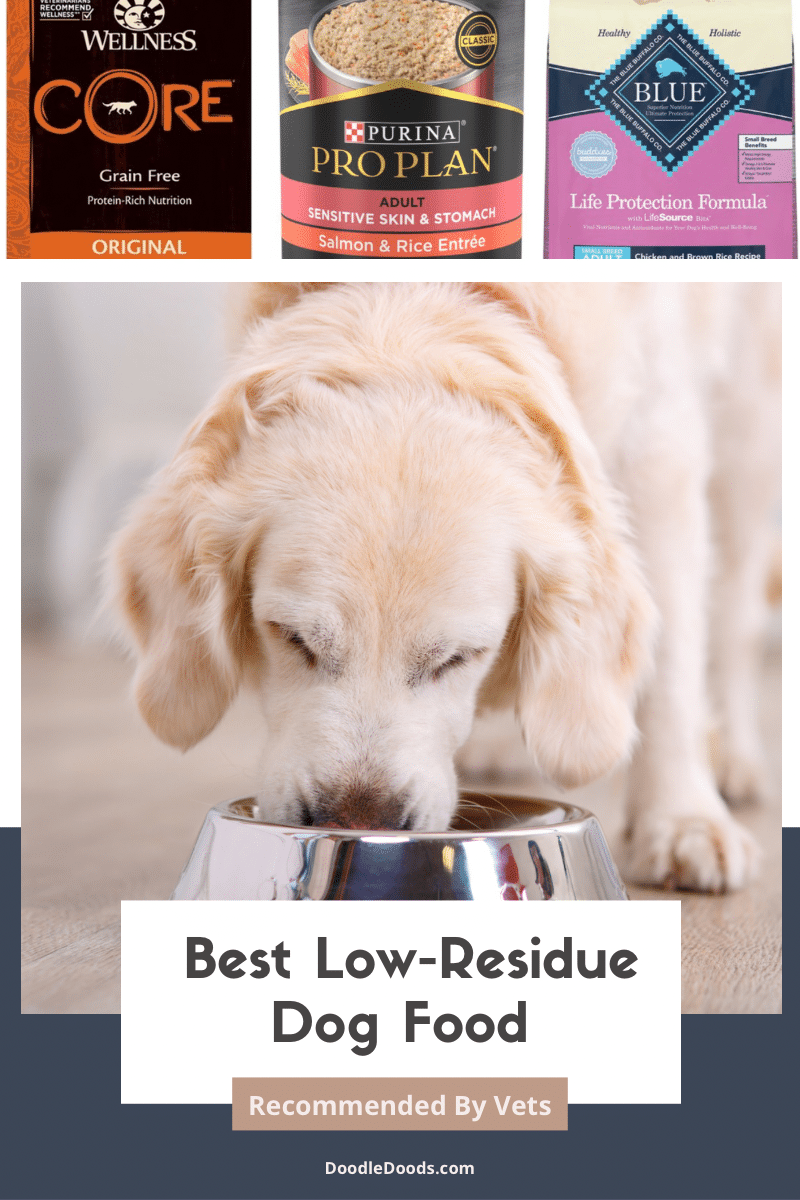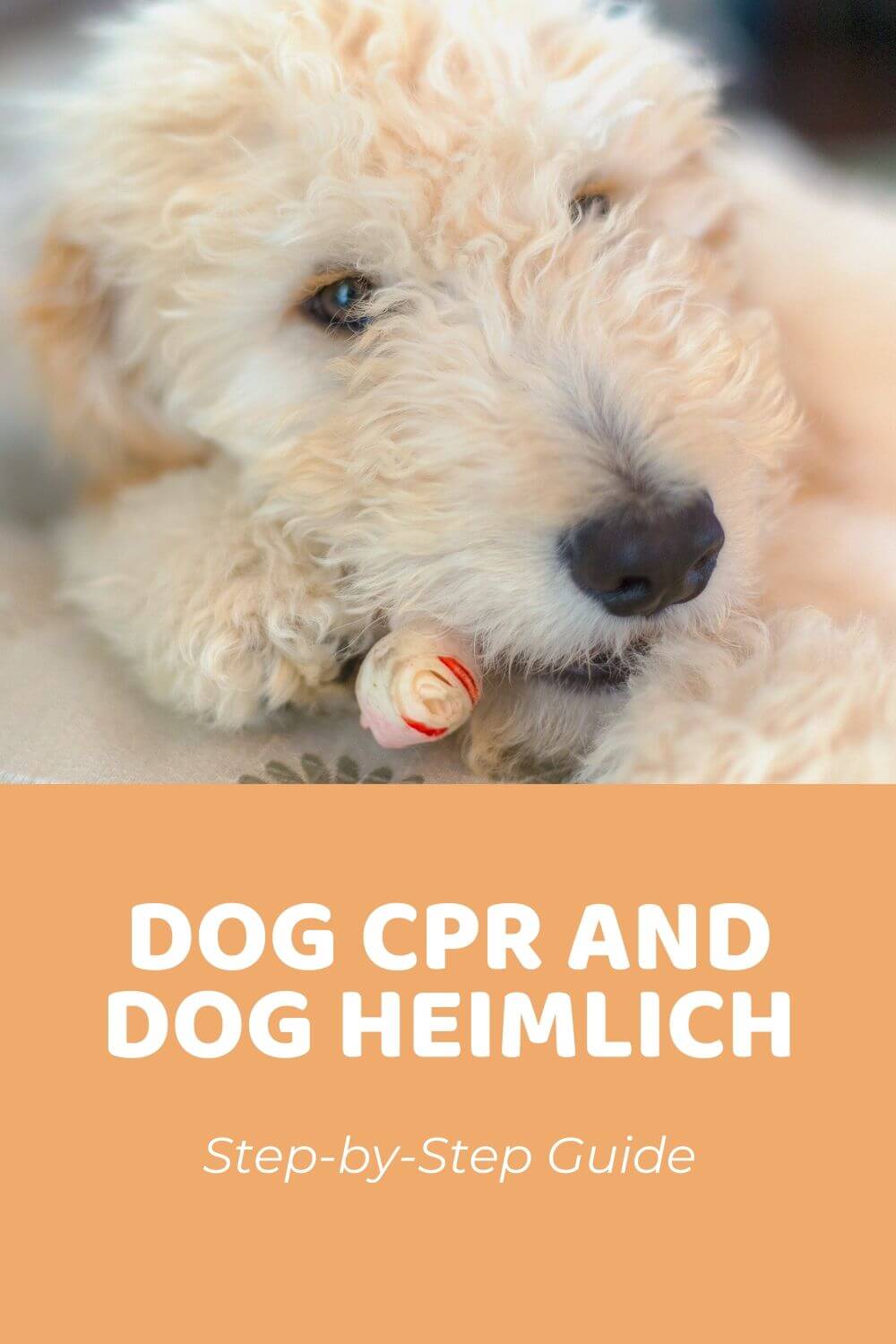Why is my dog’s nose dry? Should I be worried? Is this normal? Is there anything I should do? All of these questions are completely normal if you’ve ever noticed that your dog’s nose is dry. Especially if you’re a caring pet parent. So, in this guide, we’re going to discuss all the common reasons why your dog’s nose is dry, including whether or not you should be worried. We’ll also share with you some of our best tips on how to handle this problem. So, if you’d like to learn more, keep on reading.
Table of Contents
- So Your Dog’s Nose Is Dry: Introduction
- Should A Dog’s Nose Be Wet Or Dry?
- Why Is My Dog’s Nose Dry? Should I Be Worried?
- How Can I Treat Dry Dog Nose? Tips On How To Keep Your Dog’s Nose Moist
- So Your Dog’s Nose Is Dry: Frequently Asked Questions
So Your Dog’s Nose Is Dry: Introduction
We’ve all heard the age old tale of how a dog is supposed to have a wet nose. But, there may also be situations when that’s not necessarily the case. Oftentimes, there’s no reason to worry whatsoever. However, sometimes a dog’s dry nose could also indicate that there’s an underlying medical issue that should be dealt with.
Before we jump in to the most common causes of a dry dog nose, let’s first discuss whether or not dog’s actually need to have a wet nose and why is that necessary in the first place.
Should A Dog’s Nose Be Wet Or Dry?
Whether you’re an experienced dog owner or if it’s your first time having a four-legged canine pal, you’ve likely heard that dogs’ noses are meant to be wet. But why is that so?
First of all, a wet nose actually serves many purposes for your pooch. A wet nose helps your pup detect smells more efficiently and accurately, allowing them to identify food sources, potential dangers, and other interesting scents. We all know how much dogs love to explore with their noses! And that’s why it’s so crucial that their body works properly for them to express that natural instinct and gather information from the world around them.
Secondly, a moist nose also helps protect the sensitive skin on their snout from dryness, which can cause irritations or even lead to infections. In addition, having a wet nose is often an indication that your pup is healthy and hydrated. What’s more, a wet nose helps regulate their body temperature, as dogs don’t sweat to regulate their bodies like humans do.
However, it’s not necessarily true that a dog’s nose should always be wet. In fact, it’s normal for a dog’s nose to become dry at times. This can happen due to environmental factors such as a dry climate or excessive sun exposure, or simply because your dog has been snoozing for an extended period of time.
Nonetheless, there are a few important reasons why you should make sure your pup’s nose stays moist. A dry nose could be an indicator of dehydration or illness, so it is important to keep track of any changes in your pup’s nose condition and overall wellbeing, and contact your veterinarian if the issue persists. If your dog’s nose is dry for an extended period of time, you might have a reason to worry about.
Why Is My Dog’s Nose Dry? Should I Be Worried?
So, why is your dog’s nose dry? Oftentimes, a dog’s dry nose is caused by rather harmless and temporary reasons. Of course, if your dog’s dry nose doesn’t last for long. First we’ll discuss some of the most common and usually harmless reasons why your dog might have a dry nose. Later on, we’ll talk more in detail about worrying causes for a dog’s dry nose.
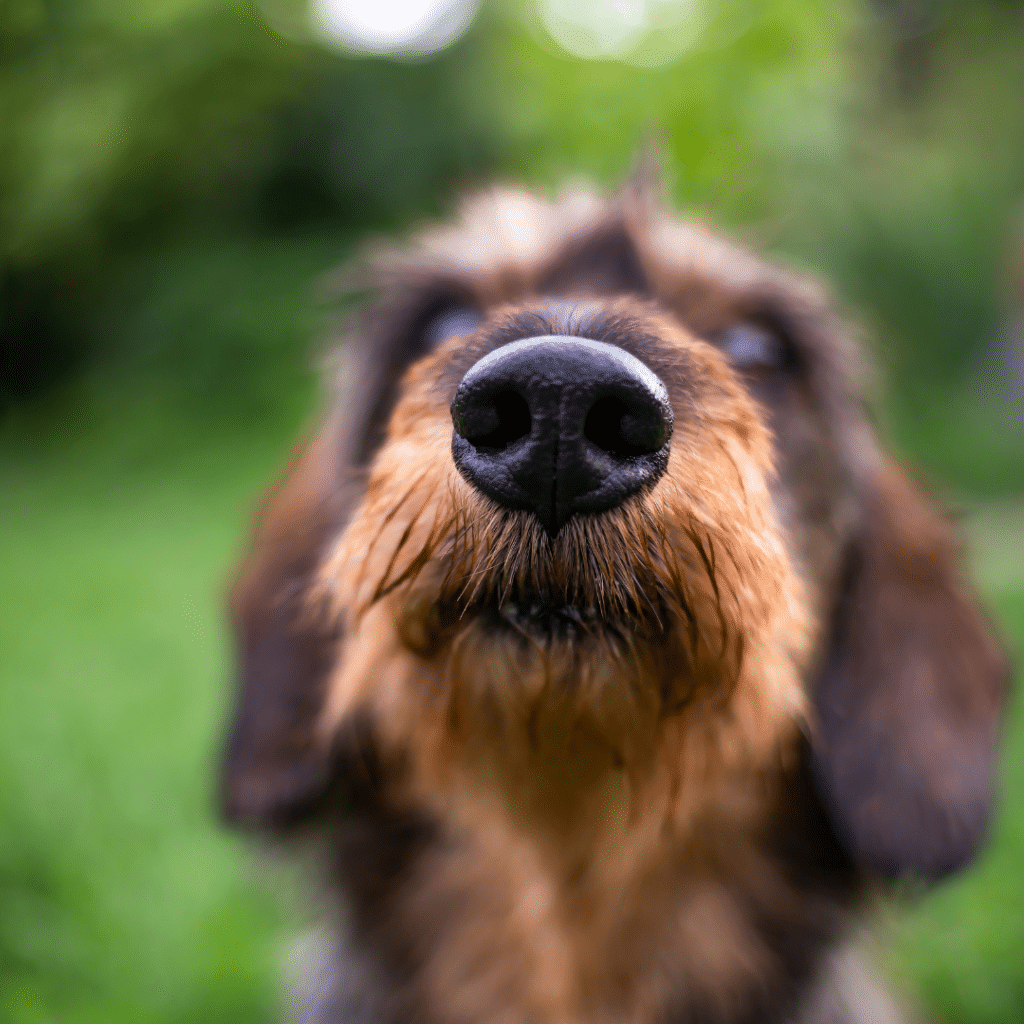
Dry Dog Nose Reasons In Healthy Puppies
Your Pup Slept Well
There’s a common misconception that a dog’s dry nose means that they have a fever or some other type of illness. But that could not be farther from the truth! Then again, it could indicate so, but that’s something we discuss a bit later on in this guide.
So, interestingly, one of the most common reasons for dry dog nose is that they simply had a very good nap! That’s down to the fact that dog’s usually do not lick their noses while they sleep. And what keeps their nose moist while awake? Their constant licking, of course. So, if you notice that your dog has a dry nose after they wake up from a refreshing nap or a good night’s sleep, it might very well be because they didn’t lick their nose while being asleep.
They Got Dehydrated After Intense Exercise
If all of a sudden your dog’s nose is dry, it might be a sign of slight dehydration. Just like humans, dogs lose fluids through exercise and panting. So, if they haven’t had enough water throughout the day or if they’ve just finished a rigorous exercise, their bodies will become dehydrated. Naturally, this can lead to a dry dog nose. The simple solution for this would be to make sure you keep an eye on your pup’s hydration levels and provide them with plenty of fresh water each day. However, if you don’t take action in a timely manner, this could lead to severe dehydration – an extremely dangerous situation for our canine pals. More on that later!
Blame The Weather
Extremely hot or very cold weather can cause your pup’s nose to become dry. When it’s super hot outside, it’s not uncommon for a dog’s nose to become dry. Similarly, extremely cold temperatures can cause the nose to lose moisture, since the body is working overtime to retain the heat during those colder winter months. In either case, you’ll want to make sure your pup has plenty of water available and limit their outdoor time in drastic weather conditions.
If you live in a very warm climate or if temperatures reach extremes during the summer months, it’s best if you take your pup out for a walk earlier in the morning and later in the evening. These are the times when the sun isn’t as high, and the UV index should be lower as well (especially if the sun hasn’t come up yet or has already set).
Your Dog Is Getting Older
As your dog ages, their nose may become dryer than usual. They start producing less of their natural oils, mucus, and also saliva, which means that it’s common for them to experience a dry nose. Additionally, elderly dogs often have weaker immune systems, which in turn increases the risk of irritations and even infections due to dry snouts. To help keep your pup’s nose moist and healthy as they age, you’ll want to provide that extra hydration and make sure they get plenty of rest in between activities.
Some Breeds Are More Prone To Dry Nose
Brachycephalic breeds, such as Pugs, Bulldogs and Shih Tzus, are more prone to dry noses because of their short snouts. Although they certainly look adorable, their short snouts make it difficult for them to lick their noses. As a result, they won’t be able to keep their noses as moist, either.
Moreover, brachycephalic breeds can have trouble panting and cooling themselves down in very warm weather, since their respiratory systems are not as efficient at regulating temperature. To help your pup avoid a dry nose, make sure you keep an eye on the weather and limit their outdoor exposure in extreme temperatures.
Dry Dog Nose Due To Health Problems
Although there are many generally harmless causes why your dog’s nose is dry, you should also be mindful of more serious health concerns. If you know how to notice the signs and symptoms, and take quick action, you can save your precious pal from more severe health complications. Let’s take a closer look:
Hyperkeratosis
Hyperkeratosis is a condition where a dog’s skin cells become thicker and harder than usual. This hardened skin can lead to dryness on the nose, as well as other areas of the body, such as the paws and ears. Some dogs are born with this disorder, while others may develop it due to allergies, high age, or an underlying medical issue. By the way, certain breeds like Cocker Spaniels, Labradors, and Irish Terriers are more prone to developing hyperkeratosis. What’s more, hyperkeratosis could also be a symptom of a more serious health condition. That’s why it’s important you contact your vet as soon as you suspect it.
Autoimmune Diseases
If a dog’s nose is dry, it could also indicate that there’s an autoimmune disease present in your dog’s body. Essentially, these health conditions can cause a dog’s immune system to attack their own body and skin cells. This can lead to skin becoming dry, flaky, and irritated. You may even notice that the skin on the nose becomes so rough that it starts to tear and bleed. Some of the most common autoimmune diseases that cause a dry nose in dogs include discoid lupus erythematosus (DLE) and pemphigus.
Allergies And Fever
Allergies and fever can both cause a dog to experience dryness on their nose. For example, allergens like pollen, dust mites, and even certain foods can lead to a dry, irritated nose. If you suspect any type of allergy, the best course of action would be to consult with your vet about the most appropriate way to manage those allergies.
Similarly, fever can also cause the skin to become dehydrated, resulting in a dry nasal area. Fever in dogs is often caused by certain infections, inflammations, and even toxins they’ve ingested.
Canine Distemper
Canine distemper is a highly contagious and an extremely dangerous viral disease that can cause your dog to get a dry nose. However, this is only the least worrying of them. Other symptoms of canine distemper include fever, loss of appetite, coughing, sneezing, runny nose, eye discharge, and lethargy, to name a few. Unfortunately, due to the severity of canine distemper, it can often prove to be fatal for dogs. If at any point you suspect that your dog may have caught canine distemper, it’s time for an urgent vet visit. However, the best way to prevent this disease altogether is by keeping your dog up to date on all of its vaccinations, including the DHPP shots.
Dry Eye And Other Eye Conditions
Interestingly enough, dog’s can also experience a dry nose because of certain eye conditions, such as dry eye, also known as keratoconjunctivitis sicca (KCS). Dry eye tends to gradually develop over time, causing symptoms like redness, irritation, pain, infections, and thick discharge in and around the eyes. Some pups may also develop cloudy eyes. If dry eye is left untreated, it can lead to more serious eye diseases, such as conjunctivitis and eye ulcers.
Severe Dehydration And Sunburn
As we discussed above, dehydration and extreme heat can both lead to a dry dog nose. Although slight fluctuations in your dog’s nose may not be that dangerous, they may lead to more severe dehydration and sunburn – both of which can be extremely dangerous for your pup.
Severe dehydration reduces the moisture within the body, which also causes the skin on the nose to become dry and cracked. Likewise, sunburn can also cause a dog’s nose to dry out as prolonged exposure to direct sunlight without protective measures, such as sunblock or shade, can cause damage to the skin. Not to mention, it could lead to skin cancer. To keep your pup healthy and happy, be sure that they are well-hydrated and never leave them in direct sunlight or hot areas for too long. It goes without saying that you should never leave your dog in a car unattended, either!
Hereditary Nasal Parakeratosis (HNPK)
If your dog’s nose is dry, you may also have to consider a genetic health condition called hereditary nasal parakeratosis (HNPK). When hyperkeratosis causes excessive keratin production, then HNPK disrupts the production of keratin – this is the protein responsible for protecting and moisturizing skin. If your pup’s body doesn’t produce enough keratin, it often results in a dry, crusty, and flaky appearance on the nose.
How Can I Treat Dry Dog Nose? Tips On How To Keep Your Dog’s Nose Moist
Now that we’ve covered the most common causes of dry nose in dogs, let’s discuss some of the best practical tips on how to prevent a dog’s dry nose and how you can help keep it moist and healthy at all times.
Keep Your Dog Hydrated
Needless to say, hydration is key when trying to prevent or treat a dog’s dry nose! The most important thing you can do is make sure that your pup drinks plenty of water every day, especially if the temperatures are high and the climate is dry. Don’t forget to always keep an eye on how much water is left in your pup’s water bowl – they won’t be able to fill it themselves (we hope you know that…).
What’s more, you can also consider investing in an air humidifier – these are designed to increase the moisture levels in the air, which is especially beneficial if your home is particularly dry. Although it can be a rather costly investment to make upfront, it could save your dog from a dry nose, discomfort, and dehydration. Not to mention, you from heartache and worry.
Apply Dog-Safe Nose Balm
Another excellent tip to prevent a dog’s nose getting dry is to moisturize it with a pet-safe balm specially designed for this purpose. There are several natural balms and moisturizers that you can apply to your dog’s nose in order to keep it moist. However, always make sure to first consult with your veterinarian before applying anything directly onto your pup’s snout! Especially if they’re allergic to certain ingredients – a surprisingly common problem in dogs.
One of our favorite choices is the Pet MD Paw Balm 3-in-1 that’s designed to protect and moisturize the nose, snout, and paws. It’s formulated with shea butter, coconut oil, and beeswax, all of which are excellent for that super hydrating feel. And since it’s specially made for dogs, you don’t have to worry about your dog licking its nose after you’ve applied it.
You can also make good use of dog-safe sunscreens to prevent sunburn. These are super beneficial for light-colored pups, especially if they’ve got a pink nose.
PS! You should never, ever, ever use a sunscreen made for humans, as these types of SPF lotions often contain ingredients that are harmful, even highly toxic to dogs.
Remove The Allergens
If the main reason behind your dog’s nose being dry is that they struggle with allergies from their food or environment, it’s best if you keep your pup’s contact to them to a minimum. If they’re allergic to a certain dog food formula, we recommend you switch it out to a more suitable one. As you can imagine, when dogs eat, their noses also touch the food. So, you want to prevent those contacts as much as possible.
Likewise, if your dog is allergic to pollen or dust, you should try to limit their contact with these allergens as well. We do recommend you contact your vet if you suspect an allergy, as they’ll be able to diagnose and manage the allergies in the most suitable way. Your vet might even prescribe a medication if the allergies are severe.
Try Pet-Safe Home Remedies
You could also dabble into some pet-safe home remedies to tackle the dry nose issue. Of course, the keyword here is “safe”. Some excellent home remedies include coconut oil, shea butter, or olive oil, which you can rub onto your dog’s nose to prevent chapping and provide that extra nourishment. Another option is to pop a vitamin E gel capsule and apply it to the nose for protection. Just make sure that the oils you use are extremely high-quality and don’t contain any unnecessary fillers or artificial ingredients – these can actually cause allergic reactions in dogs.
Contact Your Vet ASAP When Noticing These Symptoms
As you probably already have learned, it’s vital that you contact your vet as soon as you suspect any illnesses or more serious conditions, where your dog’s dry nose is just a secondary symptom. For instance, sunburn, heatstroke, and severe dehydration require immediate medical attention. The same goes for more serious illnesses, such as autoimmune diseases, fever, canine distemper, and dry eye. Of course, health conditions like allergies, sensitivities, and issues with keratin production also require veterinary care, as your pup’s vet will be able to prescribe the most suitable treatment and help you manage the problem from a scientific, proven perspective. Otherwise, all of these issues can soon worsen, some of them even becoming fatal in a matter of hours or days.
To help you determine whether or not your dog requires veterinary care, it’s crucial that you keep an eye on their overall behavior, wellbeing, appetite, and bathroom habits at all times. If you notice any loss of appetite, lethargy, changes in bathroom habits, sunken eyes, changes or bleeding of the nose, sneezing, coughing, or even excessive licking or scratching, it’s time to contact your vet immediately.
So Your Dog’s Nose Is Dry: Frequently Asked Questions
Although a dry nose can be simply due to your dog having a good nap or just finishing a proper exercise, it could also indicate that there’s a more serious issue to be dealt with. A dog’s dry nose could hint to fever, dehydration, skin conditions, allergies, or infections. If you suspect that your pup is sick due to other symptoms they’re exhibiting, such as vomiting or loss of appetite, it’s important that you get them checked by a veterinarian immediately.
The most important thing is to make sure that your dog has access to plenty of clean drinking water throughout the day. Literally, at all times. That’s especially true if you’ve got a very active dog, or if you live in extreme weather conditions.
First and foremost, if your dog’s nose is dry due to a health condition, it’s vital that you get them to the vet ASAP for proper treatment. However, if your dog’s nose is dry because of mild dehydration or the weather, you can moisturize and protect it with a dog-safe balm or a high-quality oil, such as coconut, olive, or vitamin E oil.
If your dog’s nose is dry, it doesn’t exactly mean that they’re tired. However, it’s very common for dogs to get a dry nose when they sleep, as they don’t lick their noses while asleep. So, the next time you notice your dog having a dry nose after waking up from its beauty sleep, it’s very likely due to them getting some much-needed rest. Nonetheless, be sure to provide your pup with clean drinking water upon waking up, and keep an eye on their nose. If the issue persists, your dog’s dry nose could indicate that there’s an underlying health issue instead.
Indeed, coconut oil is an excellent way to naturally moisturize and protect your dog’s dry nose, especially if you live in a very warm climate or in extreme cold temperatures. However, you may find that a specially formulated nose balm for dogs does a better job. Nonetheless, if you don’t have access to dog nose balms, coconut oil can do the trick!
Final Thoughts
While it’s normal for a dog’s nose to become dry on occasion, it’s important to pay attention to any sudden changes. A dry nose could be an indicator of dehydration or even illness, so if your pup’s nose stays persistently dry, then you should consult with your veterinarian immediately. Other than that, making sure your pup has enough clean drinking water throughout the day and using natural balms like coconut oil are some of the best ways to make sure their noses stay healthy and moist. All in all, making sure your pup’s nose is healthy and hydrated can go a long way in maintaining their overall health and wellbeing.

